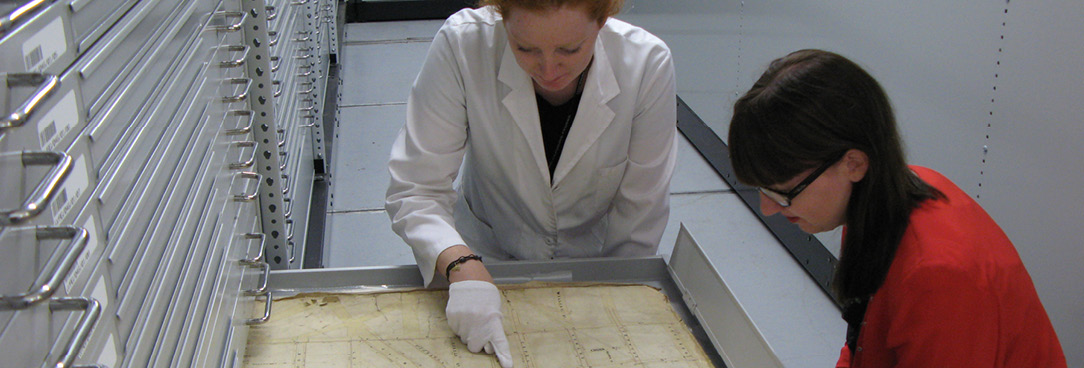
Author: Public Record Office Victoria
We are lucky at Public Record Office Victoria to work with an amazing team of volunteers. Our volunteers work closely with historic records from our collection. Our volunteers are currently working on approximately 10 projects, focusing on areas of the collection such as inquest depositions, land selection documents and public works plans. All our projects have the aim of preserving our collection and making its contents accessible to researchers.
Here, two of our longest serving volunteers share their experiences of volunteering with us:
Leonie Marshall
1. Why did you start volunteering at PROV?
I was co-opted into volunteering on my first visit to the research room at PROV. One of the members of our family history society was also working there and suggested that I might like to join her and two others on the 7.40am train from Frankston. They were transcribing the Passenger Lists, and, as I had used these to find my grandparents’ arrival in Melbourne, I thought I could repay this discovery, and perhaps help some other family history researcher. It wasn’t long before I realised what a terrific group of people I was working with, and that the friendship of those volunteers was equally as important as the work that we were doing.
2. What's the most exciting record you've discovered?
It was also terrific to lay a family myth to rest by finding just when my grandparents arrived: six months separated their arrival, not the two years that the myth suggested.
3. What project are you working on now / what's the last project you worked on?
Currently, I am working with the land selection records, which are also important to researchers, giving a history of the land worked from early selection days. The records are often dusty and crumbling, but the information they reveal is anything but. Prior to this, I worked on the Inquest records, which were quite gruesome, but most interesting from a social history point of view. It’s hard to recognise now, the Victoria that some of those victims of all kinds of illnesses lived in. And the depression that led some to take their own life.
4. What do you enjoy most about volunteering?
The friendship of the volunteers I work with has been really important. Some of our members have suffered illness and grief, but the support of the group has been visibly helpful to them. It doesn’t seem to matter what you want to know, there is always someone in the group who has the answer. The variety of backgrounds that has brought Wednesday’s group together is remarkable. Who could not enjoy getting up at 5.30am to take the train from Frankston to join them?
Gail Thornthwaite
1. Why did you start volunteering at PROV?
I started volunteering at PROV in March 2006, having visited a few weeks earlier with the Fitzroy History Society. My interest in history and my learning that PROV runs a volunteer program attracted me to the organisation.
2. What's the most exciting record you've discovered?
While working on the outward passenger shipping lists I came across the names of an Australian cricket team on their way to England. There were other interesting passengers, including Dame Nellie Melba.
3. What project are you working on now / what's the last project you worked on?
For the last year or so I have been working on the Albany Project. Prior to that I worked on 'Battle to Farm', the KIN Project, and the outward passenger index.
4. What do you enjoy most about volunteering?
I enjoy working in a most congenial environment with like-minded colleagues who are interested in all facets of history. I also enjoy the social moments - the camaraderie experienced at morning tea and lunch times!
Interested in volunteering? Find out more about our program here.
Discover more of our long-standing volunteers on our online Volunteer Honour Board.
Material in the Public Record Office Victoria archival collection contains words and descriptions that reflect attitudes and government policies at different times which may be insensitive and upsetting
Aboriginal and Torres Strait Islander Peoples should be aware the collection and website may contain images, voices and names of deceased persons.
PROV provides advice to researchers wishing to access, publish or re-use records about Aboriginal Peoples
